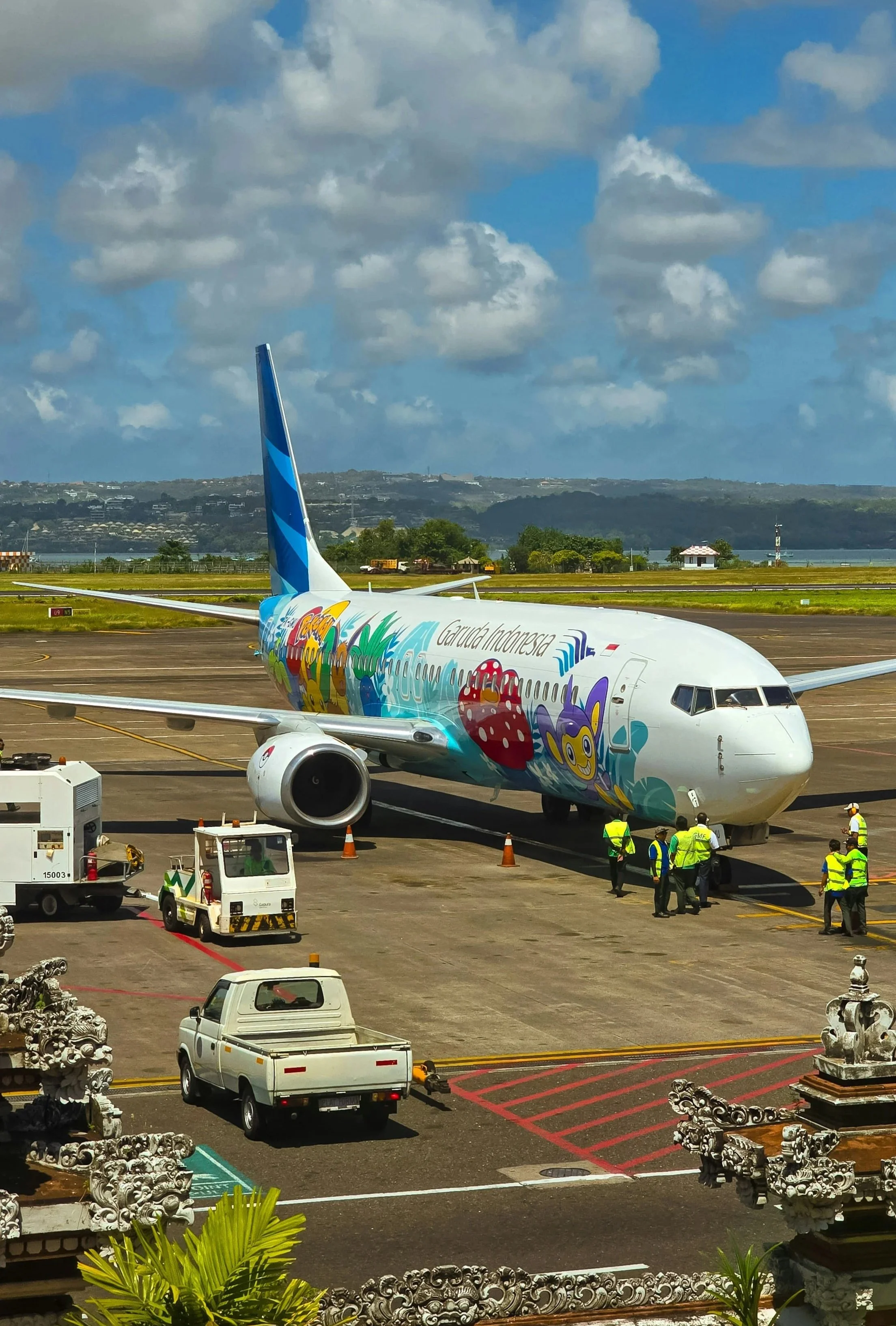Bali's New Currency: WiFi, Wellness, and the Work-From-Paradise Revolution
From Canggu's co-working cafés to Ubud's rice-terrace offices, Indonesia's most enchanting island has quietly become the world's most sophisticated remote-work destination—and savvy investors are taking note.
Is Bali the ideal place for digital nomads and remote workers?
Absolutely. Bali continues to solidify its status as a top global hotspot for digital nomads and remote workers due to improved internet infrastructure, flexible visa options, affordable living costs, and a rich lifestyle that blends work with tropical relaxation and cultural vibrancy. Sources: bali.com guide and Skratch (2025)
The morning light filters through the palm fronds outside Made's warung in Canggu, where the aroma of nasi goreng mingles with the salt air. At a weathered teak table, a Swedish entrepreneur closes a deal with clients in Stockholm while a Brazilian graphic designer uploads portfolios to São Paulo—all before 9am. This is Bali's new reality: a place where the boundaries between vacation and vocation have dissolved into something altogether more compelling.
The island that once defined itself solely through tourism has undergone a quiet transformation. Today, Bali stands as perhaps the world's most sophisticated hub for the global remote-work revolution—a place where fiber-optic cables run beneath ancient temple grounds and morning surf sessions precede afternoon video conferences with New York.
The New Bali Blueprint
Walk through the narrow lanes of Canggu or the verdant valleys of Ubud and you'll encounter a new kind of resident. These aren't the backpackers of old, clutching worn Lonely Planet guides. Today's Bali migrants arrive with MacBooks and monthly recurring revenue, seeking something more nuanced than a gap-year adventure: a lifestyle that seamlessly blends productivity with tropical indulgence.
The infrastructure has evolved to match these ambitions. Popular enclaves like Canggu, Uluwatu, Seminyak, and Ubud now boast fiber-optic internet speeds reaching 300 Mbps—faster than what many European capitals offer. Sleek co-working spaces have sprouted between rice paddies, their glass walls framing views that would make any Manhattan corner office pale by comparison.
These locations cater to every stripe of remote professional, from freelance copywriters to tech entrepreneurs managing global operations. The daily rhythm is distinctly Balinese: productive mornings followed by beachside lunches, afternoon temple visits, and sunset sessions that might involve either yoga or client calls—often both.
The Visa Revolution
Jakarta's recent policy shift has been transformative. The introduction of Indonesia's Digital Nomad Visa in 2025 allows remote workers to remain tax-free for up to five years, provided their income originates outside the archipelago. It's a game-changing piece of legislation that eliminates the anxiety-inducing visa runs that once defined the nomad experience.
The traditional tourist visa remains popular among shorter-term visitors, though its six-month renewal requirement and employment restrictions make it less suitable for serious remote workers. For investors and property developers, understanding these regulatory nuances is crucial—they directly influence long-term residency patterns and rental demand.
The Investment Imperative
This demographic shift hasn't gone unnoticed by astute property investors. Bali's remote-work community generates consistent demand for rental properties that prioritize comfort, privacy, and productivity. Villas equipped with dedicated workspaces, high-speed internet, and lifestyle amenities command premium rates, particularly in established nomad neighborhoods.
The numbers are compelling. Competitive property prices relative to other tropical destinations, combined with Bali's sustained influx of international workers, create compelling opportunities for both capital appreciation and rental yields. The emergence of purpose-built co-living spaces signals a market that's maturing beyond basic accommodation toward community-oriented lifestyle solutions.
The Lifestyle Premium
What sets Bali apart isn't just its affordable cost of living or reliable internet—though both matter enormously. It's the island's ability to offer something increasingly rare in our hyperconnected world: genuine work-life integration. Digital nomads often arrive for a few months and find themselves extending stays indefinitely, drawn by the tropical climate, thriving wellness culture, and proximity to some of Asia's most spectacular landscapes.
This lifestyle magnetism attracts not just renters but buyers—international investors and eventual homeowners who understand that Bali offers something money can't buy elsewhere: the daily possibility of closing a conference call and watching the sunset from a cliff in Uluwatu.
Navigating the Challenges
The picture isn't uniformly rosy. Internet reliability can fluctuate during peak usage periods, making properties with dedicated connections or backup systems particularly valuable. Competition among residential and commercial developments is intensifying, placing premium value on location and distinctive features.
The regulatory landscape requires careful navigation. While Indonesia actively encourages creative economy growth, foreign ownership restrictions and evolving immigration policies demand expert local guidance. Successful investors engage experienced legal counsel and market specialists who understand both the opportunities and the complexities.
The Long View
Bali's transformation from tropical escape to global work hub feels both inevitable and remarkable. As remote work evolves from pandemic necessity to permanent lifestyle choice, the island's unique proposition—cultural richness, natural beauty, and modern connectivity—positions it for sustained growth.
Smart investors are focusing on developments that anticipate future needs: integrated co-working spaces, wellness amenities, and community engagement opportunities. The convergence of Bali's tourism heritage, emerging remote-work culture, and sophisticated property market supports long-term innovation in residential offerings.
The Verdict
Bali's emergence as a premier digital nomad destination represents more than a trend—it's a fundamental shift in how we think about living and working. For international investors and future residents, the island offers a rare combination: affordable tropical living enhanced by world-class connectivity and an inspiring cultural backdrop that supports both professional ambition and personal fulfillment.
The key is choosing properties and locations that serve today's sophisticated remote workers: excellent connectivity, inspiring environments, and access to the wellness and community facilities that define the modern Bali experience. With thoughtful planning and expert guidance, investing in Bali's digital nomad market promises both lifestyle enhancement and attractive financial returns.
After all, in a world where work happens anywhere, why not choose paradise?



